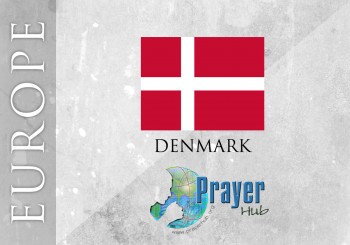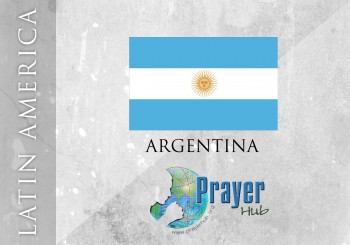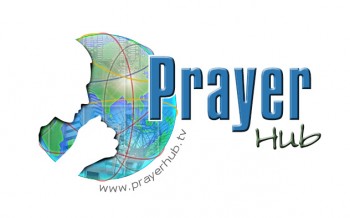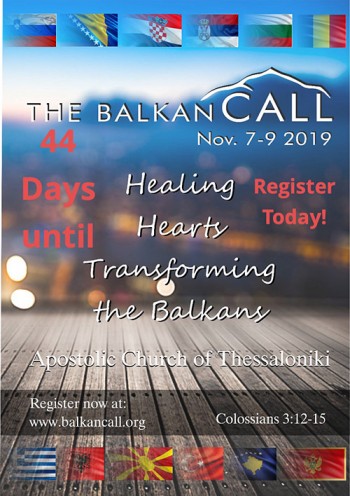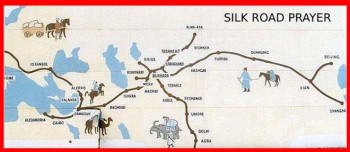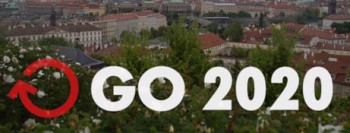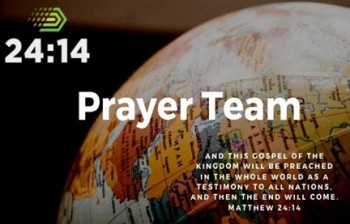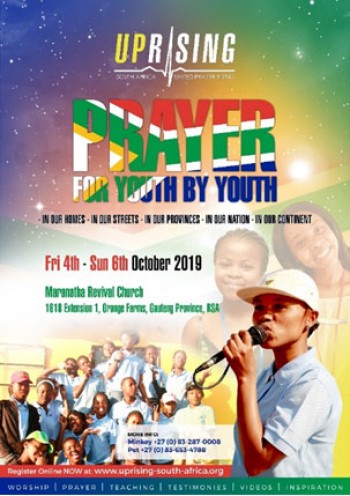
Super User
Lorem ipsum dolor sit amet, consectetur adipisicing elit, sed do eiusmod tempor incididunt ut labore et dolore magna aliqua. Ut enim ad minim veniam, quis nostrud exercitation ullamco laboris nisi ut aliquip ex ea commodo consequat. Duis aute irure dolor in reprehenderit in voluptate velit esse cillum dolore eu fugiat nulla pariatur
Vivamus ac arcu vel lorem tempor ultricies. Sed urna augue, tempus nec molestie eget, pharetra vel ante. Etiam eu blandit nulla. Duis sit amet leo eu massa posuere lobortis. Pellentesque habitant morbi tristique senectus et netus et malesuada fames ac turpis egestas. Phasellus hendrerit placerat mattis. Vestibulum turpis tellus, semper nec consequat quis, finibus ac enim. Cras luctus lorem eget dui finibus, sed porta ligula sollicitudin. Proin ac elit eget lacus eleifend eleifend.
In elementum fermentum ornare. Proin in tortor vitae justo fringilla viverra. Lorem ipsum dolor sit amet, consectetur adipiscing elit. Proin malesuada posuere mauris consequat fringilla. Phasellus non lacus ultrices, aliquam tortor sed, pellentesque tortor. Maecenas a dui aliquam, vestibulum arcu at, laoreet nunc. Aenean eros turpis, pretium non laoreet in, viverra vel ligula. Aenean tincidunt, mi eu pharetra viverra, tellus lectus hendrerit nunc, commodo vehicula mi ex ac dolor. In ac nisl sit amet eros pretium ultrices. Fusce tristique enim nec massa semper pellentesque.
Aenean eros turpis, pretium non laoreet in, viverra vel ligula. Aenean tincidunt, mi eu pharetra viverra, tellus lectus hendrerit nunc, commodo vehicula mi ex ac dolor. In ac nisl sit amet eros pretium ultrices. Fusce tristique enim nec massa semper pellentesque.
Fusce neque orci, molestie et accumsan et, viverra ut mi. Aliquam quis odio a ipsum auctor pulvinar. Nam varius convallis metus quis tempus. Cras consectetur viverra mi. Sed venenatis nec nibh vitae pellentesque. Nam imperdiet nisl vitae dui vulputate scelerisque. Fusce porta fermentum nunc. Nulla facilisi. Sed mattis nulla mauris, et auctor purus molestie at. Vivamus accumsan quam vitae rutrum tempor. Cras aliquam suscipit ornare. Pellentesque sapien est, consequat ac ex in, accumsan finibus dolor. Quisque vitae tincidunt diam, eu finibus massa. Phasellus eleifend, magna quis lobortis dignissim, eros nulla malesuada ipsum, lacinia elementum nunc tellus eu mauris. Praesent sit amet diam dapibus, viverra quam sed, pellentesque leo.
Lorem ipsum dolor sit amet, consectetur adipiscing elit. Nunc id ipsum ornare dolor eleifend fringilla quis ut leo. Aenean vestibulum augue sit amet condimentum commodo. Maecenas maximus tempor ligula et eleifend. Curabitur tempor, velit nec vestibulum pulvinar, dolor nisl viverra diam, sit amet maximus tortor magna et tortor. Mauris eu arcu mauris. Integer commodo leo quis risus cursus, ut semper lacus euismod. Sed cursus facilisis elit sed faucibus. Etiam quis iaculis ante. Ut non orci diam. Mauris ac velit metus. Suspendisse mollis nisi ut molestie volutpat. Aliquam erat volutpat. Pellentesque bibendum tortor et metus pulvinar mattis.
Donec vulputate sapien arcu, at lacinia lorem vulputate eu. In posuere purus et magna aliquet porttitor. Nullam massa lectus, tincidunt vel massa at, maximus molestie tortor. Integer rutrum ante sapien, eu ornare tortor interdum sed. Duis vitae dapibus quam. Aliquam nec ex vel libero maximus suscipit sed quis risus. Maecenas ullamcorper dui quis lectus mollis consectetur quis et orci. Ut sapien arcu, posuere id rutrum eget, elementum eu leo.
Sed fermentum tincidunt purus et accumsan. Aliquam posuere mattis posuere. Cras a vestibulum leo. Pellentesque habitant morbi tristique senectus et netus et malesuada fames ac turpis egestas. Nunc quis mi eros. Vivamus ac arcu vel lorem tempor ultricies. Sed urna augue, tempus nec molestie eget, pharetra vel ante. Etiam eu blandit nulla. Duis sit amet leo eu massa posuere lobortis. Pellentesque habitant morbi tristique senectus et netus et malesuada fames ac turpis egestas. Phasellus hendrerit placerat mattis. Vestibulum turpis tellus, semper nec consequat quis, finibus ac enim. Cras luctus lorem eget dui finibus, sed porta ligula sollicitudin. Proin ac elit eget lacus eleifend eleifend.
Crosswinds is pioneering the PrayerHub.TV project in partnership with a number of our prayer and mission colleagues around the world.
We are inviting friends who share our vision for connecting, informing and mobilising prayer internationally AND are interested in joining our team as Country Editors, Continental Editors, Proof Readers or Media Teams to get in touch!
Please go to this page and then click the link to complete the online form. We will get back to everyone as soon as we can.
For further information about the PrayHub.TV project, visit the website HERE.
Now is the time to register and make your plans to be with us on November 7-9, 2019 in Thessaloniki, Greece. The meeting place, Apostolic Church of Thessaloniki, is reserved. The worship teams are preparing. Already people are starting to pray for this gathering which will be the 4th Balkan Call so far.
For those of you hearing about the Balkan Call for the first time:
The Balkan Call Prayer Event is a 3 day (6 session) call to prayer to all believers everywhere in the Balkan nations who are hungry and desperate to see breakthrough and revival come to this region.
6 Steps to being with us at the Balkan Call:
- Pray and seek the will of the Father. If you have confirmation from Him then you can trust that He will guide you and provide for your way.
- See if there are others who also feel called and want to travel together.
- REGISTER TODAY at: www.balkancall.org
- ON YOUR OWN make lodging reservations. Some options are listed on the website or check out:
www.booking.com or airbnb.com - Recruit a prayer team to be praying for you and the Balkan Call 2019 gathering!
- Consider coming early and/or spending time in the dedicated 24/7 Balkan Call prayer room.
Click here for more information: Balkan Call Prayer Room
Questions?
- Read over the website completely.
- Still questions? Send email to: This email address is being protected from spambots. You need JavaScript enabled to view it.
The Feast of Tabernacles
At the time of Christ, the Feast of Tabernacles was extremely rich with symbolism, and theology. God gave his people two primary reasons to celebrate the feasts. First to remember, and second to renew hope.
God gave them the feasts to help Israel remember her deliverance and her provision from Yahweh and also to renew their hope! If God had delivered and provided for them in the past then they can trust him to do so in the future!
In Leviticus 23:34-43, God instructed the people to build temporary shelters (sukkah) and to live or tabernacle in them for 7 days to remind them that God tabernacled among them in the desert. The Feast of Tabernacles was held in the fall where worshippers would live in little ‘huts’ or ‘tents’ to recall the days when their ancestors lived in tents as they made their way through the Sinai desert. They remembered how God-the Living God himself-graciously chose to come and live with them in a tent called the Tabernacle.
One of the major ceremonies during the feast of tabernacles at the time of Christ was the light ceremony. Jesus claimed, “I am the light of the world; follow me and you will not walk in darkness but will have the light of Life” (John 8:12). Jesus could have made that claim anywhere, to anyone, at any time but he chose to make it in a particular context during the Feast of Tabernacles (John 7:2).
On the first night of the Feast, when the sun had set to the sound of joyful singing, they would light four, twenty-foot high candelabras, looming over the city so that all of Jerusalem was aglow with light! During this ceremony they would recall how God had guided them through the desert with a pillar of fire by night and cloud of glory by day. God could guide because God is Light. For seven nights people celebrated God as Light and then on the eighth night the candles were extinguished and they looked forward again to next year when light would light up the city of Jerusalem again. It was on the eighth night when Jesus, walking through the court of women proclaimed, “I am the Light. I am the Light of the World.” His statement is brilliant in every sense of the word! It’s as if Jesus is saying, “I am the light that pierces the darkness every night, illuminating the whole world.” As William Barclay writes of Jesus, ‘I am the light that never goes out.’ Staggering! And not just light ‘of the world,’ but light ‘for the world.’ As it says in Isaiah 9:2,
“The people walking in darkness have seen a great light; on those living in the land of the shadow of death a light has dawned.”
As the apostle Paul declares, “God who said, let light shine out of darkness’ has shone in our hearts to give us the knowledge of the glory of God in the face of Christ’ (2 Cor. 4:6). Jesus Christ, the Morningstar, shines out during the darkest and the coldest time of the night. He is the brilliant one. He is the dazzling one. He is the chandelier of heaven! He is clothed in garments of light. His face shines brighter than the sun. His eyes are like flames of fire, with burning desire to do the will of the Father!
Jesus calls us to follow him and be the “light of the world” (Matt. 5:14-16). He calls us to reflect the light of his life to those around us! Those who love the light come into the Light so that all will be exposed. Nothing is hidden from God. Light reveals and exposes all things. There is no such thing as a “private moment.”
The true acid test of whether we are being the light of the world, is whether or not we love one another. I John 2:10, “Whoever loves his brother lives in the light, and there is nothing in him to make him stumble.”
As the IPC global family, we want to grow in radical love for Christ, love for one another and love for the lost and broken of our world. One of the best ways that we can love well is through a lifestyle of prayer!
All true intercession is born out of love. May God grant to us the grace to grow together in Love-motivated prayer. As Dr. Alvin VanderGriend writes, “Love motivated prayer is a love-motivated plea to a love-giving God, on behalf of love-needy persons who live in a love-starved world”
Let’s ask the Father to “Light up every nation” with the brightness of his glorious Son. Come Lord Jesus and ‘tabernacle’ in our midst as we mobilize love-motivated prayer across nations, denominations, and generations for the fulfillment of the great commission!
Dr. Jason Hubbard – IPC Executive Coordinator
Recently, a group of key Central Asian pastors and leaders gathered for 3 days of fasting and prayer. Out of this meeting our vision to raise up strong, unified, consistent prayer for this region of the world was re-ignited.
In partnership with Central Asian Consultation, we are launching "Silk Road Prayer". We will be sending out regular prayer updates with specific information on how to pray for current needs in the region. We will also be using Social Media to quickly spread information necessary for focused prayer. Within Central Asia, we will be working with pastors and prayer leaders to mobilize more united prayer!
Thank you for joining with us in this effort to see God move in a new and unprecedented way all along the ancient Silk Road!
"...The earnest (heartfelt, continued) prayer of a righteous man makes tremendous power available [dynamic in its working]." James 5:16 AMPC
Eunice Danielson
Silk Road Prayer Coordinator
Current Prayer Needs:
- Pray for believers and churches that are facing persecution across the region; pray for His great strength to stand strong
- Pray for justice in a court case against a leading church in Kazakhstan
- God is answering prayer for the church in Uzbekistan! The government now seems willing to grant registration to churches which in the past were unable to register. Pray for every church that is submitting applications to be granted registration so that they can meet freely without fear of persecution
- Pray for the church in Turkmenistan to have favor with the government, pray that they also will be granted registration and freedom to meet
- Pray for safe and fair elections to be held in Afghanistan this weekend
- Pray especially for the Uighur (and other Muslim minority) people of NW China. Over 1 Million (possibly up to 3 Million) are being imprisoned and tortured in "Re-education Camps". This includes many of our Christian brothers and sisters. Pray for God to use this horrible situation to draw many to Himself.
Global Outreach Day is a Global Missions Network that calls the Church worldwide to focus on praying and sharing the Gospel with the un-churched in the month of May each year.
This coming year, May 2020 the vision is to mobilise 100 million people in united prayer.
We are calling this initiative Go2020!
Already, Christians in 250,000 churches across 140 nations are part of this global outreach strategy to pray and witness towards the fulfilment of God's great commission.
Can you imagine with me - God calling 100 million Christians to united prayer for the global harvest?!
We know that Jesus said that the harvest is ready, but the workers are few. Pray then to the Lord of the harvest to send forth laborers into the harvest fields of the nations. (Luke 10:2 ESV Paraphrased)
Would you join us in praying for Go2020?!
Together, we can reach 1 billion people with the Gospel!
For more info and to sign up, visitwww.go2020.world/prayer
Dr Jason Hubbard - IPC Executive Coordinator
24:14 is a community of people catalyzing, nurturing, and supporting church planting movements globally.
The vision of the 24:14 Coalition is to see every unreached people and place engaged with a reproducing Church Planting Movement team by the end of 2025.
Strategic Prayer for Movements
The vast majority of new movements are started by existing movements. Supporting existing movements through prayer (receiving specific prayer requests from existing movements) gives strategic prayer access toward seeing more movements started, and thus, the fulfilment of the 24:14 vision.
God is joining prayer movements directly with mission movements through trusting relationships. As a result, the 24:14 prayer team has launched a unique prayer initiative for mission work today amongst the least reached peoples and places. They are receiving prayer news and requests from church planting movement leaders around the world, and sharing these with the wider Body of Christ.
These valuable insights into the needs and opportunities in movements, and work amongst unreached people groups, give strategic prayer access toward Kingdom advance. Each week the requests focus on a different region of the world. They are sent out via email on Sundays (September only), Mondays, Wednesdays, and Fridays.
Join us as we pray for movements and movement catalysts to find and fill every gap where there is not yet CPM engagement!
Sign Up For Prayer Updates from Church Planting Movement Leaders
For more information about the 24:14 Prayer Team please email us at: This email address is being protected from spambots. You need JavaScript enabled to view it.
UPRising South Africa - ‘PRAYER By Youth For Youth’ - 4-6 Oct 2019
The young people of UPRising (United Prayer Rising) are saying that as young people in the church, we are Uniting in Prayer, Rising as a body of young people, forming a revival wave, taking a stand, marching to the gates of Hell to give the devil back his surname and take our Identity back.
And Uniting in prayer together, black or white, every tribe, putting our differences aside and praying non-stop with every young person across South Africa, Africa and around the world. Because where there is United Prayer, (Psalm133:1-3) God is present and where God is, there is hope, love, transformation and honour.
UPRising South Africa aims to mobilise young people in every street, every township, every city, every province to Pray, BELIEVING.... and to see great and wonderful things happen as a result!
We will gather. We will pray. We will see change across our country.
4th - 6th October, Orange Farm, Johannesburg, Gauteng, South Africa.
Bishop Peter Sekhonyane - IPC Leadership Team
More at: www.uprising-south-africa.or

